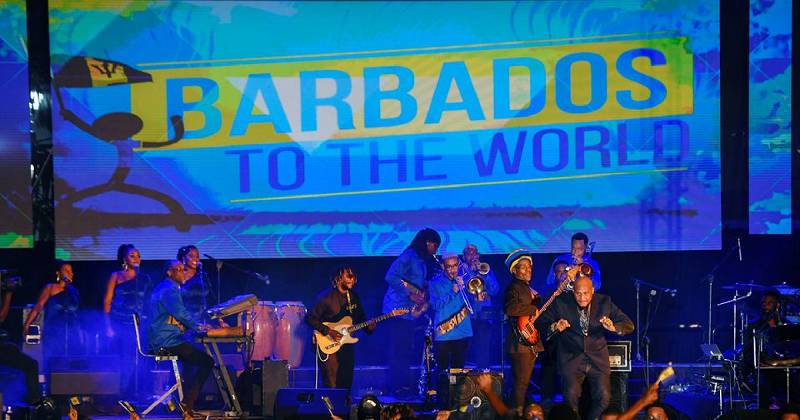
Barbados ended its oath of loyalty to Queen Elizabeth II on Tuesday, shedding another relic of its colonial past and becoming a republic for the first time.
The ceremony, which began late Monday in a prominent square where a statue of a well-known British lord was demolished last year amid a worldwide movement to eliminate symbols of oppression, was attended by several leaders and dignitaries, including Prince Charles.
At midnight, fireworks rained down from the sky as Barbados became a republic, with screens set up across the island to broadcast the celebration, which featured an orchestra with more than 100 steel pan musicians and a variety of artists. It was also broadcast online, eliciting a flurry of enthusiastic replies from Bajans in the United States, Canada and other parts of the world.
One viewer said, ‘Happy Independence Day and independence to all.’
The island’s push to become a republic began more than two decades ago, and it concluded last month with the island’s Parliament electing its first president by a two-thirds majority vote. On the 55th anniversary of Barbados’ independence from Britain, Governor General Sandra Mason was set to be sworn in before daybreak on Tuesday.
Mason, who is 72 years old, is a former ambassador to Venezuela, Colombia, Chile and Brazil, as well as an attorney and judge. She’ll assist Prime Minister Mia Mottley in leading the prosperous Caribbean island of over 300,000 people, which is reliant on tourism, manufacturing and finance.
Although Barbados would remain a part of the Commonwealth Realm, it does not require authorization from the United Kingdom to become a republic. It’s an event the Caribbean hasn’t seen since Guyana, Dominica and Trinidad and Tobago established republics in the 1970s.
Barbados gained independence from the British in November 1966, more than three centuries after English settlers landed and transformed the island into a prosperous sugar colony reliant on the labour of hundreds of thousands of African slaves.
The island has begun to distance itself from its colonial heritage in recent decades. Barbados dropped the Privy Council in London in 2005 and picked the Caribbean Court of Justice in Trinidad as its final court of appeal. It then planned a vote on becoming a republic in 2008, but it was postponed indefinitely. Barbados declared preparations to end its constitutional monarchy last year and a statue of British Vice-Admiral Horatio Nelson was removed from National Heroes Square, the site of the republic’s celebration.
According to Suleiman Bulbulia, a journalist for the Barbados Today newspaper, the flag, coat of arms and national song would remain the same, but specific allusions may change. The titles ‘royal’ and ‘crown’ will be phased out, thus the Royal Barbados Police Force will become the Barbados Police Service, and ‘crown lands will become ‘state lands,’ he wrote.
He wrote, ‘It is the dawn of a new era. Any Barbadian can now aspire to be our President.’

Post Your Comments